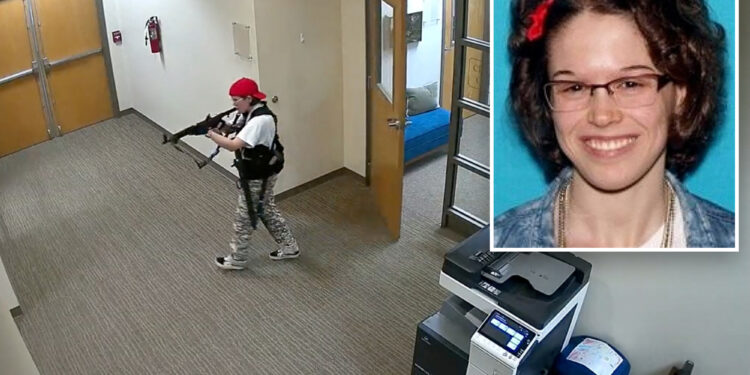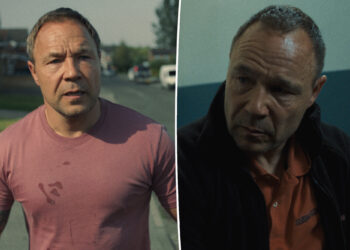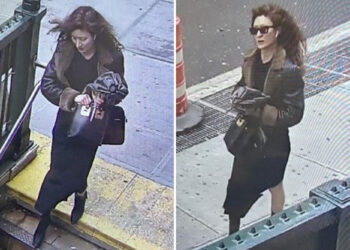
Parents of the victims of the 2023 Covenant School shooting begged a judge not to release the killer’s manifesto at a hearing in Nashville Tuesday.
Transgender Audrey Hale killed three children and three adults at her former school in March last year before being shot by police. The 28-year-old left behind at least 20 journals, a suicide note, and an unpublished memoir which the school and associated church have made a huge effort to prevent being released.
Media companies and free speech advocates are suing to make Hale’s writings public, citing the public’s right to know what motivated the shooting.
At the second day of hearings Wednesday, the court heard from victims’ families. One written affidavit presented in court implored Judge I’Aesha L. Myles to bar the release of the writings.
“I will not stand by to allow these shooter’s writings be published in any way. This mass murderer doesn’t get to speak from the grave,” wrote Erin Kinney, whose 9-year-old son William was killed by Hale.
“I find my heart heavier with grief that I could never imagine,” Kinney added. “I must live through every single hour that my child is gone from this world … Despite this immense pain, I implore you to serve what little justice you can.”
Free speech attorneys arguing for the manifesto’s release have previously addressed parents’ statements, pointing out that while they may be traumatized, the matter should not be decided by them.
Robb Harvey, representing The Tennessean media outlet, pointed out the parents were not actually the victims of the crime, saying: “What happened that day, it’s a tragedy, but it doesn’t mean that everyone at the school is a victim.”
The parents were added to the lawsuit in December after a Tennessee court of appeals ruled they could be a part of it.
Lawyers also argued Wednesday they own the copyright to the writings, because Hale’s family turned over the estate to the victims’ families after the incident.
“Imagine us going to Taylor Swift’s residence and they collect Ms. Swift’s writings and found 10 new songs,” the families’ attorney Eric Osborne told the court. “We are in the same position as Ms. Swift. This is copyright and shouldn’t be public.”
But judge Myles seemed unimpressed with the copyright argument, saying that everything written down is not automatically copyrighted. “This might be a federal court issue,” she said. “But if everything written is copyrighted, then nothing can be public record.”
At the previous day’s hearing, attorney Doug Pierce, who represents the National Police Association, argued that the families of the victims do not have “copyrightable interest” in the writings and that public interest outweighs the families’ wishes.
Other parties suing for the Covenant shooter’s writings to be made public include The Tennessean, The Tennessee Star, The Tennessee Firearms Association and Senator Todd Gardenhire.
Additionally, more than 60 members of the Tennessee House Republican Caucus signed a letter last May calling for Metro Nashville Police to release the manifesto.
A third argument put forward is that releasing the manifesto could pose a security risk to the Covenant school, which has inserted itself into the legal arguments at every turn.
“A shooter is motivated by fame and notoriety by publishing their writings and thoughts,” argued Rocklan King, an attorney for the school. “By providing those thoughts a platform, you are providing the notoriety and fame. By doing that, it’s a real threat. [Others] will engage in copycat behavior.”
“These are 6- to 7-year-olds, and at most 18-years-old,” King continued. These children cannot protect themselves. The general assembly said to you that if it’s related to school security, you shall not disclose it.”
At the previous day’s hearing, Pierce had explained the burden of proof is on those trying to suppress the documents from being released, rather than those seeking it and pointing out “the strong general rule is information is available to the public.”
Pierce also said the argument for copycat killers is weak, and studies have shown the window in which such actions take place is very short.
At the end of court on Wednesday, Judge Myles acknowledged that the release of the manifesto was a complex issue. “You have placed a heavy burden on me,” she told attorneys. “It’s not something I take lightly.”
“My heart breaks for the families in this case,” she said. “I am a solicitor, but I am also a human. And as a human, I offer my condolences to the families who have been affected by this tragedy.”
It’s unclear when Judge Myles will issue a ruling, but on Wednesday she asked lawyers for additional written arguments after the hearing. She gave them a seven-day deadline to file the briefs.
Myles will likely rule after she has had a chance to review those arguments. Both sides have vowed to appeal the ruling if it doesn’t go their way, meaning the issue is unlikely to be resolved any time soon.



























